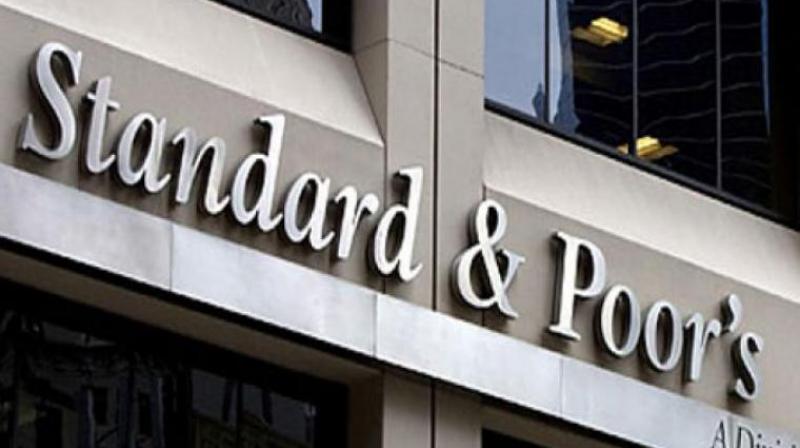Banks set to be stronger: S&P
The rating agency hinted about a possible review of ratings going ahead.

Mumbai: Stating that the worst is almost over for the Indian banks, S&P Global Rating said the banking system is set to strengthen over the next couple of years as stressed loans are cleared and capital injections from the government shore up eroded capital bases.
The rating agency hinted about a possible review of ratings going ahead. “Ratings are more likely to be raised than lowered in the next two years. That said, weak risk management and internal-control practices limit the potential for considerable upside,” it said.
While another year high provisioning is likely as public sector banks clean up their balance sheets and provide for losses on their stressed assets, S&P believes that a turnaround in the earning performance of India’s banks should take place in fiscal 2020.
“We estimate that Indian banks’ recognized non performing loans (NPLs) now cover a substantial part of weak loans in the system, which comprise about 13 per cent – 15 per cent of total loans,” said Geeta Chugh, credit analyst at S&P Global ratings.
It noted that the banks categorized an increasing proportion of weak loans as NPLs due to more stringent requirements by Reserve Bank and the government.
The agency feels that this more realistic recognition, coupled with rebounding corporate profits, and quicker resolution of non-performing assets under the new bankruptcy law, will help banks gradually recover from a protracted bad-debt cycle.
“We believe the Reserve Bank of India’s strengthening norms and more stringent timelines mean that banks will increasingly find it more difficult to window-dress accounts to hide the true level of weak assets,” Ms Chugh said.
However, it cautioned that the expected turnaround in the banking sector could get delayed if large unexpected non-performing loans materialize in the agriculture sector, where the government granted loan repayment waivers could hurt credit discipline.
The government’s ongoing recapitalisation program of Rs 2.1 lakh crore will help shore up depleted capital positions.
While this is insufficient to meet the sector's capital needs, the rating agency believes the government could arrange additional support as needed.

